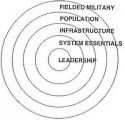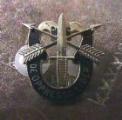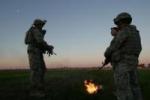reason to have a resident philosopher on board -
Besides your overall look at "legitimacy" (I won't ask you to define what I can only exemplify), I was reminded from this point:
of similar points by Marc Legrange re: the South Sudan and other "poore" African places where a state of "warre" (if not allowed to get out of hand) is relatively better in-security than the state of "security" promised by a government external to the population group.from wm
If one does not view Hobbes' State of warre as bad, then the rest of the argument that justifies one's surrending one's liberty to an outside governance fails.
Regards
Mike





 Reply With Quote
Reply With Quote












 .
.

Bookmarks